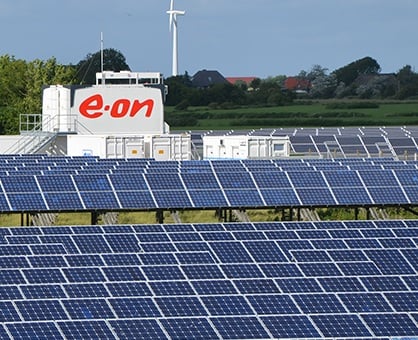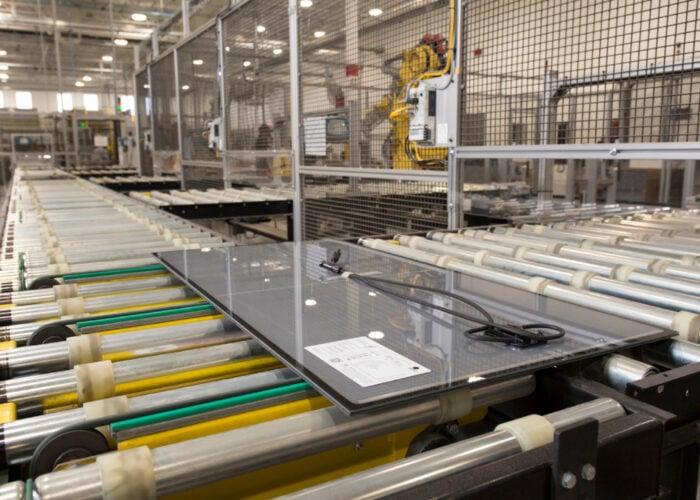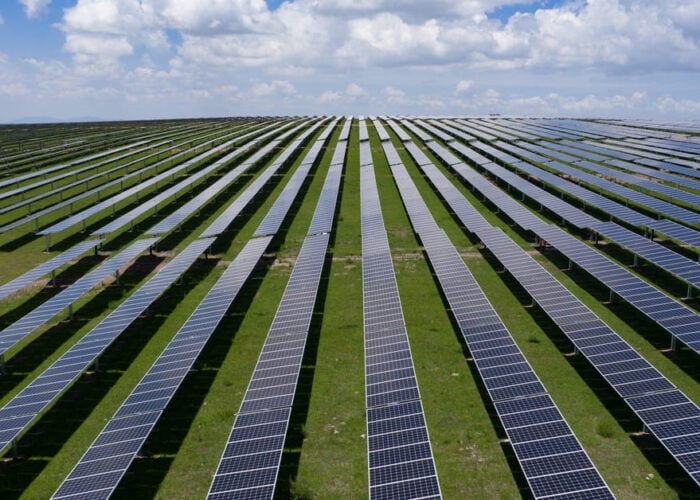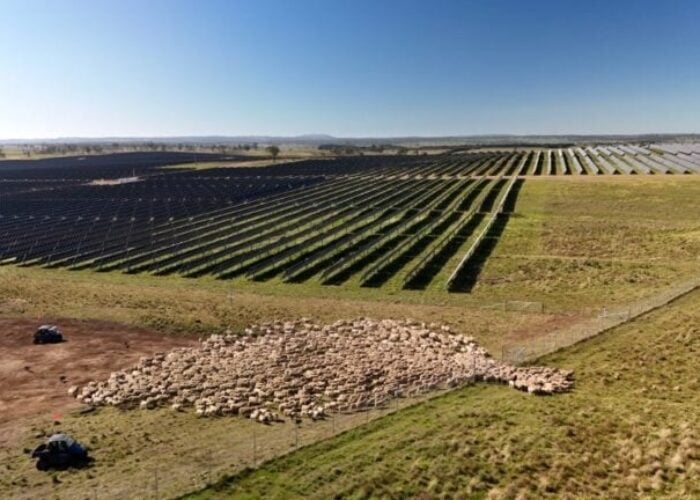
German utility E.On has partnered with engineering major thyssenkrupp to plug large-scale hydrogen electrolysis plants into Germany’s grid using a renewables-backed virtual power plant (VPP).
The companies will make use of a 600MW VPP comprising distributed generation assets in both Germany and the UK to provide surplus power to electrolysis plants whenever needed. In tandem, the VPP will allow power otherwise earmarked for hydrogen production to be diverted to the grid at times of high demand.
Try Premium for just $1
- Full premium access for the first month at only $1
- Converts to an annual rate after 30 days unless cancelled
- Cancel anytime during the trial period
Premium Benefits
- Expert industry analysis and interviews
- Digital access to PV Tech Power journal
- Exclusive event discounts
Or get the full Premium subscription right away
Or continue reading this article for free
The approach, both companies said, would make hydrogen electrolysis plants “electricity market ready” while simultaneously enabling industrial hydrogen to integrate into energy systems more efficiently.
The entire process will be controlled automatically by E.On’s VPP software, adapting generation and consumption in accordance with network loads.
The method has been successfully tested within a pilot scheme, dubbed Carbon2Chem, using a plant with a capacity of 2MW in Duisburg, Germany.
Due to the fast-response nature of thyssenkrupp’s electrolysis plant, the companies also pointed towards the potential for the technology to participate in primary control power markets, a method that has already been tested with Germany’s transmission system operator.
Thyssenkrupp and E.On are now marketing the ‘Power-to-X technology’, promoting the VPP coupling as an additional option for operational hydrolysis plants.
Stefan Hakansson, chief executive at E.On Business Solutions, said the collaboration with thyssenkrupp followed the company’s principle that any conversion of industry to clean energy must be “essentially economical”.
“With our expertise in all aspects of the energy market, we are also succeeding in breaking down a barrier to the sensible use of hydrogen to generate electricity,” he added.
Christoph Noeres, head of energy storage & hydrogen at thyssenkrupp, added: “We have achieved another important goal. Previous tests had already shown that our electrolysis plants produce green hydrogen with high efficiencies. At the same time the plants are responsive and flexible enough to participate in the balancing energy market. Our plants thus make a decisive contribution to a stable power supply and at the same time make a significant contribution to the economic efficiency of green hydrogen.”
Hydrogen production has emerged as a trending topic in the renewables space this year, with a number of pilot projects aimed at exploring the synergies between clean energy and hydrolysis having launched. Some of the largest projects have been pegged for Australia, where oil and gas major BP has landed government funding to explore the feasibility of renewable hydrogen projects.
Europe too looks set to be a destination of high levels of funding for green hydrogen projects. The European Union is due to unveil its own green hydrogen strategy next month, with rumours and leaks of draft text pointing towards a significant amount of support being made available for the launch of power-to-hydrogen projects in the continent.
Solar Media, publisher of PV Tech, is hosting its inaugural Green Hydrogen Digital Series event next month. The event, hosted entirely online, is supported by SmartEnergy and will take place over four days from 17 – 21 August 2020. For more details on the event and how to get involved, click here.






